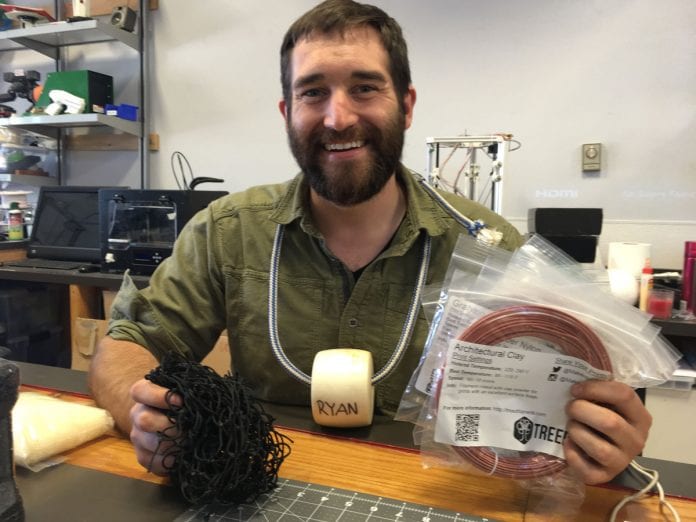
Former fisheries observer turned university research scientist Nicole Baker is on a mission to recycle thousands of pounds of discarded fishing nets and ropes into new products.
The key, said Baker, during a challenge workshop in Anchorage Sept. 8-9, is to get people to see all these nets not as waste, but as raw materials.
Baker’s passion for recycling nets stems from her trips to Dutch Harbor as a fisheries observer, when she first laid eyes on piles of groundfish nets weighing thousands of pounds each. She’s already made connections with one company in Copenhagen, Denmark, that recycles old fishing gear into plastic pellets, which can be used to make many other products.
Now she’s trying to encourage folks to come up with new product ideas.
During this challenge, more than a dozen participants collaborated in teams to come up with ideas for recycling those old nets and ropes into economically feasible and marketable items.
Baker, a University of Washington fisheries researcher, collaborated with Joel Cladouhos, director of the Anchorage-based Alaska Ocean Cluster Initiative, to organize the Net Hack Challenge, a program to identify ways to recycle discarded commercial fishing nets and ropes by developing new products.
Cladouhos is also the founder and organizer for the Ocean Technology Innovation Sprint, or OTIS, developed in conjunction with the Alaska Ocean Cluster Initiative, Bering Sea Fishermen’s Association and the University of Alaska’s Business Enterprise Institute.
The Net Hack Challenge was held at the Anchorage Makerspace, in midtown Anchorage.
The event space provides 3D printers, a professional laser cutter, electronics and woodworking equipment, large format printers and other design software for workshops, classes and other events.
The event attracted more than a dozen people, from artists, office managers and engineers to a federal fisheries analyst, who spent the weekend creating an eclectic array of potential products ranging from artistic jellyfish to display boards, brushes, backpacks, goal pens for young hockey players and emergency shelters and pop-up beds. A simultaneous event in Kodiak drew four participants.
Judges awarded first prize to the Anchorage team of Elizabeth Figus and Cindy Albanil, for their prototype of a stiff brush, and second prize to Anna Wilks, also of Anchorage, for a goal pen. The idea is for kids to be able to put these pens, made of derelict fishing equipment, together in their front yard, said Wilks, who also advocated for use of discarded fishing net at a variety of sports events to protect fans in the bleachers from being struck by flying balls.
“These are all fantastic ideas,” said Carol Howarth, of the 49th Fund LLC, who served as an event judge. Howarth is a founding manager of the private equity fund in Anchorage which is focused on investment in companies with clear potential that are already generating revenue and in need of capital or operational assistance.

Photo by Margaret Bauman/The Cordova Times














